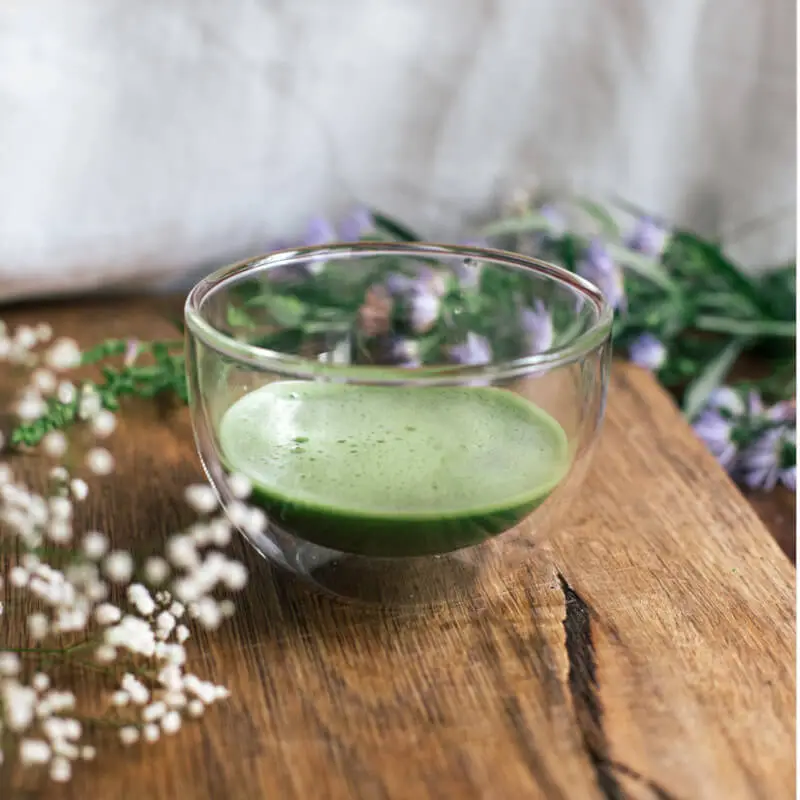Green tea lovers reach for it all over the world for many reasons. Its extract is an extremely strong antioxidant preventing aging processes, improving concentration, and boosting metabolism. Some kinds of green tea, such as matcha powder, can even pose as a substitute for coffee or energy drinks due to their stimulating effect. But does green tea actually have a better impact on blood pressure than coffee? We rush to explain within the following article.
What people with increased blood pressure should watch out for
Research shows that those, who are at the highest risk of developing hypertension, are most frequently overweight, obese and following a diet that is unfit for their personal needs. Foods that are the prime suspects, when it comes to generating problems with excessively high blood pressure, are empty carbohydrates and foods rich in saturated fats. These are, for example, white bread, white flour pasta, egg yolks, sweets or fatty meats, as well as coffee and whole milk of animal origin. The fight against hypertension begins with avoiding or completely excluding this type of foods from your menu. The next step is to include products showing a positive effect on blood pressure and overall cardiac activity and well-being – such as the discussed green tea.
Green tea and blood pressure
People who should carefully monitor their blood pressure levels often search for drinks that could potentially replace coffee. That’s they are frequently driven towards green tea, which is not only healthy but also highly stimulating. According to many studies, some of which are available on our website, green tea is safe for people with high blood pressure and other cardiovascular dysfunctions. Green tea in the recommended daily dose (up to 5 grams) does not raise the blood pressure, so it is recommended and safe even for the elderly over the age of 60. What does such green tea’s properties stem from? The source of such effect is the L-theanine, an amino acid found in tea leaves in significant amounts. It is a substance showing an effect of deep relaxation, consequently calming the effect of caffeine.
L-theanine does also have a highly beneficial effect on the production of serotonin within the body. Serotonin is the so-called “happiness hormone”. It is responsible for regulation of such aspects as our well-being, sleep cycle or blood pressure. Its concentration within the norm, ensured by the effect of L-theanine contained in green tea, effectively prevents the occurrence of cardiac activity distortions (such as the discussed increased blood pressure).
So what do we recommend for the people with blood pressure problems?
Research clearly shows that for people suffering from the problems with excessively high blood pressure, green tea is a highly beneficial health choice. The fact additionally opting for including green tea in one’s everyday diet, is the fact that it has a positive effect not only on blood pressure. Its regular consumption results in a number of desired effects, such as antioxidant, slimming, metabolism-boosting, antiseptic and anti-aging effects. We recommend matcha especially to people, who are particularly interested in the experience of the health-promoting properties of green tea to its fullest. Matcha is a powdered green tea, in which the content of the aforementioned L-theanine, as well as chlorophyll and a wide range of other vitamins and minerals, is even ten times higher than within a standard leaf tea infusion. This is due to the fact that the leaves cultivated for matcha production are grown with the use of the traditional Japanese method called ‘Oishitaen’. Such method consists in shading the tea bushes with traditional bamboo mats. Such limited access to sunlight mobilizes tea bushes to intensify the production of valuable chlorophyll, L-theanine and polyphenols. You can read more about the topic on our website.
